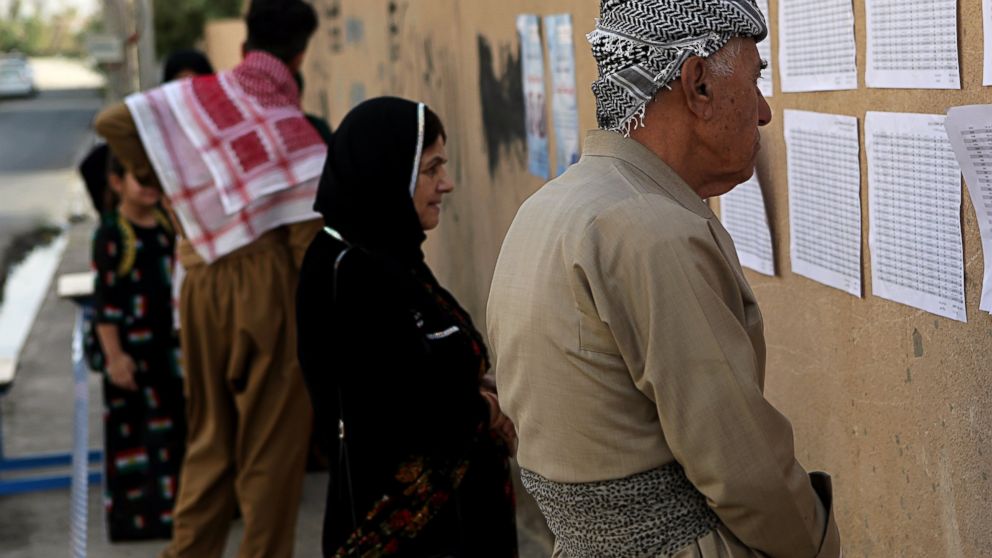Baghdad – Sunni leaders in Iraq plan to meet with Prime Minister Haidar al-Abadi to suggest establishing their own region as they follow in the footsteps of Kurds, who last week voted for their own independence.
They will “propose establishing several regions in respect with the Constitution that allows them to take similar steps,” a source close to the Union of Iraqi Forces said on Sunday.
The source told Asharq Al-Awsat that Sunni officials took the decision of sitting with al-Abadi after they met on Saturday.
“Those officials believe that Sunni factions have a chance that cannot be missed to force the government approve the creation of a Sunni region” that would realize their self-autonomy, the source said.
He added that many provinces still feel “resentment” towards government forces or members of the Popular Mobilization Units already present in those areas.
The source pointed out that Sunni leaders “do not rule out an alliance with the Kurds in case Baghdad insists on rejecting their region’s requests. However, until now, those leaders speak about the issue in private,” he said.
The new step reflects a growing faith among the Sunnis on a “new federalism” where they would act as one of the three main players next to the Shi’ites and the Kurds in the post-ISIS phase and following the Kurdistan referendum on independence.
On Sunday night, Sheikh Rafi Taha Al-Rifai, the Grand Mufti of Iraq issued a statement supporting the request of establishing a self-administered region, which he considered as a determination to get rid of the “oppression and injustice directed against Sunnis.”
The Mufti also criticized politicians who “claim to represent the Arab Sunnis.”
Sheikh Al-Rifai said the “hateful sectarian policies” produced by the successive governments in Iraq were responsible for the country’s crises.
“They stabbed Iraq, dispersed the bond of the nation and have incited hatred among all spectrum of the society,” he said.
